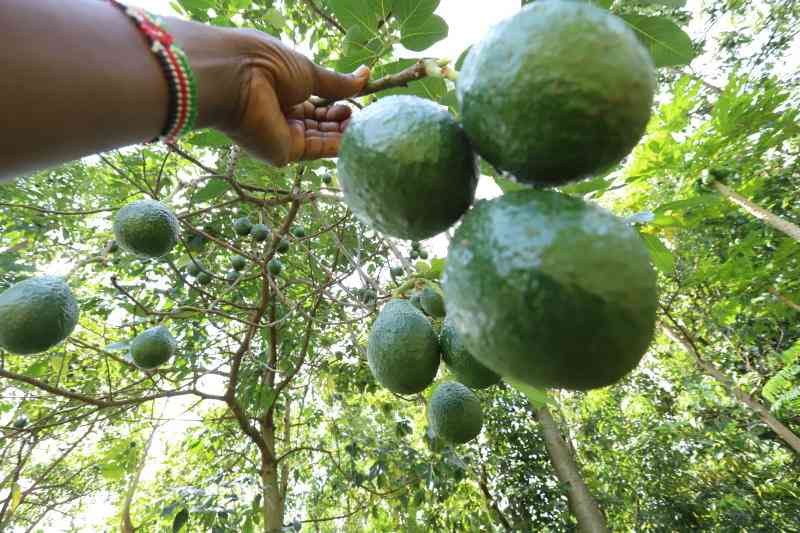
Full of flavour, packed with a high nutrient punch and neatly protected by its own skin, it is no wonder that the amazing avocado is gaining popularity as a healthy superfood.
There is a great deal of talk and action around avocado farming at the county level and even now nationally and internationally. It is most important to retain our reputation for good quality sustainable production in the Global Market.
With the opening of the Chinese market for fresh avocado, the produce, commonly known as green gold is making a lot of farmers rethink their strategies. One farmer, Richard Tuwei is ready for the Chinese market as his produce was among the first batch to be transported to China's vast market.
Tuwei farms both Hass and Fuerte avocados. But for the export market, he says the Hass variety is most prefered.
Other varieties in the Kenyan market are Keitt, Reed, Booth 8, Simmonds, Pinkerton, Nabal, Puebla, Tonnage, Ettinger, Hayes, G6 and G7.
"Months ago we brought avocados here and the prices were low, we were told due to the war between Russia and Ukraine, but I am glad, with the opening of the Chinese right now I sell at Sh100 per kilo compared to before where brokers bought from us at Sh2 per fruit," says Tuwei.
Ecological conditions
- Myth or truth? The okra water magic
Keep Reading
Temperatures between 16 to 24 degrees centigrade are good for growing avocados and the maximum temperature for avocado is 33 degrees centigrade.
Avocado grows successfully on many types of soil provided they are deep, with good water holding capacity and free draining. The optimum pH is 5.5 to 6.5.
A well-distributed annual rainfall of up to 1,600 mm is optimal for good production. Climatic conditions with alternating dry and rainy seasons are best for avocados.
Irrigation is essential where rainfall is not adequate.
Propagation
Propagation is majorly by grafting. This is done when the seedlings reach pencil thickness. The wedge grafting method is most successful.
It should be done at the point where the rootstock is soft, and the scion should be dormant at the time of grafting and should match the size of the stock.
The grafting point should be wrapped thoroughly to exclude water from the union.
Planting
Dig planting holes. The general spacing for pure stands of avocados is 9metres by 9metres.
Fill the holes with topsoil mixed with manure and DAP to improve nutrients uptake by the young plants as well as stimulate growth.
Plant the grafts in the holes, to the same depth as they were in the nursery.
Water the seedlings immediately after planting if it is not in the rainy season and shade the young plants.
Pest and disease management
Pests include fruit flies, False coddling moths, thrips, scales, spider mites, bugs and swarming leaf beetles. To control these, spray pesticides as advised by experts.
Diseases include avocado root rot, anthracnose, Cercospora leaf and fruit spot, scab, bacterial soft rot and stem end rot. Ensure to use clean planting materials and chemicals as advised.
"With the right farm management, you are guaranteed good quality fruits," says Tuwei.
Harvesting
Avocados are ready for harvesting five to ten months after flowering. This depends on the variety and the ecological conditions of the region.
Immature fruits do not ripen but become rubbery, shrivelled and discoloured. If picked when fully grown and firm, avocados ripen in four to five weeks at room temperature.
Market
Tuwei sells a kilo of avocado at Sh100.
"If one tree can give up to 200 kilos, that is Sh20,000 from one tree. What if I have 100? You do the math," says Tuwei.
 The Standard Group Plc is a multi-media organization with investments in media platforms spanning newspaper print
operations, television, radio broadcasting, digital and online services. The Standard Group is recognized as a
leading multi-media house in Kenya with a key influence in matters of national and international interest.
The Standard Group Plc is a multi-media organization with investments in media platforms spanning newspaper print
operations, television, radio broadcasting, digital and online services. The Standard Group is recognized as a
leading multi-media house in Kenya with a key influence in matters of national and international interest.

